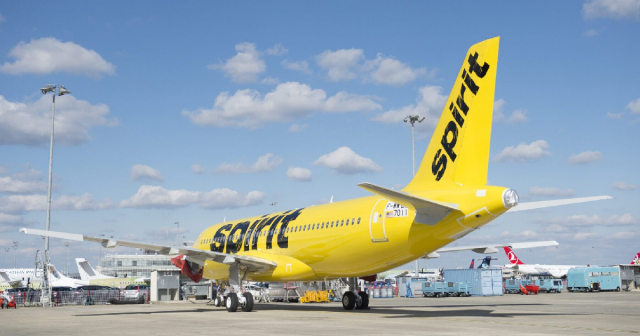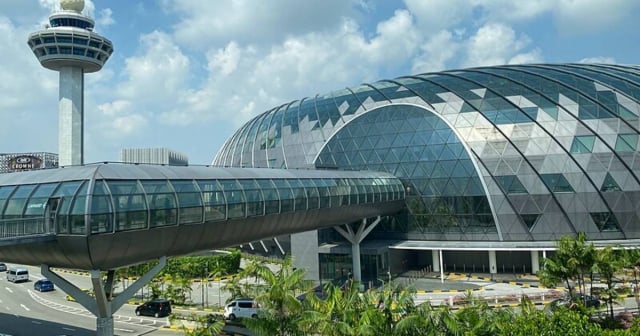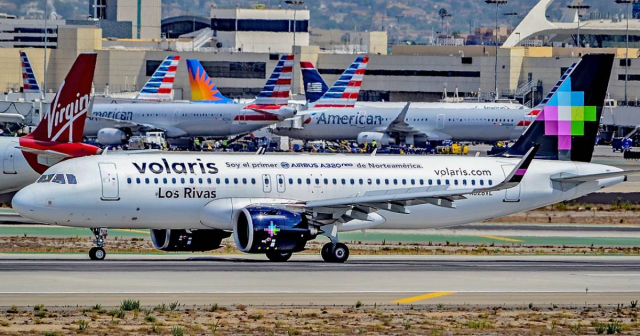Spirit Airlines, known for leading the low-cost air travel model in the United States, announced in a statement this Monday that it is declaring bankruptcy.
The measure comes after years of economic difficulties marked by increasing losses, a failed merger attempt with JetBlue Airways, and the impact of the pandemic on the aviation industry.
However, the airline assures that it will continue to operate flights normally while progressing in its restructuring process.
Causes Behind Spirit's Financial Crisis
The company, based in Florida, has been facing financial challenges since 2019, worsened by the pandemic.
During this time, operational costs soared, and a withdrawal of defective engines grounded dozens of its aircraft, according to reports in the U.S. press today.
This is compounded by the decline in prices in the U.S. domestic market and a shift in consumer preferences, as they now prioritize more comfortable experiences, even at a higher cost.
Additionally, the cancellation of its acquisition by JetBlue, blocked by a federal judge for antitrust reasons, left Spirit without the opportunity to stabilize its finances through a merger.
Spirit's economic difficulties intensified with the pressure to renegotiate over $1.1 billion in debt payments due next year.
Additionally, the airline has reported losses exceeding $2.5 billion since 2020, and in the first half of 2023 alone, it accumulated an additional loss of $335 million.
To remain operational, Spirit has sold planes and reduced routes, generating $519 million in liquidity from the sale of 23 Airbus aircraft.
However, these measures have not been sufficient, and the company has already laid off hundreds of employees in an attempt to control costs.
Impact on passengers and continuity of operations
Despite its challenges, Spirit Airlines assured that customers will not experience interruptions in their flights or in their ability to make reservations or use loyalty points.
The airline's CEO, Ted Christie, sent a reassuring message to users.
"The most important thing to know is that you can continue to book and fly now and in the future," he said.
Spirit is confident that it will emerge from bankruptcy protection in the first quarter of 2025. Bankruptcy provides Spirit with an opportunity to reorganize, reduce costs, and potentially explore new mergers or collaborations.
Chapter 11 of the United States Bankruptcy Code allows businesses and individuals to reorganize their debts under the supervision of a court while continuing to operate.
Unlike Chapter 7 liquidation, this process aims to provide time to renegotiate terms with creditors, reduce debts, or adjust payments by presenting a reorganization plan that must be approved by the court and the creditors. During the process, an automatic stay is enacted, temporarily halting collection actions by creditors.
Although it is a useful tool to prevent business closures and resolve complex financial issues, Chapter 11 is costly, can take a long time, and relies on the feasibility of the proposed plan. If the plan fails, the company or individual may face liquidation of their assets.
In the case of Spirit, the airline relies on its ability to adapt and continue being a choice for travelers seeking budget flights.
In the meantime, customers should remain vigilant regarding potential changes to schedules or operations, although Spirit assures that it will continue to provide its regular service without interruptions for now.
Spirit was a pioneer in offering low fares with additional charges for services, a model that revolutionized the budget travel market.
Although this strategy was popular among customers looking to save, competition from larger airlines and changes in the post-pandemic market limited its ability to remain profitable.
Despite innovations such as more spacious seating and bundled fare packages, Spirit was unable to regain financial stability.
The future of Spirit Airlines will depend on its ability to overcome current restrictions, maintain consumer trust, and adapt to a market that increasingly demands quality and competitiveness.
The declaration of bankruptcy does not signify the end of its operations, but rather an effort to salvage a brand that has been iconic in the low-cost segment in the United States.
Filed under:






